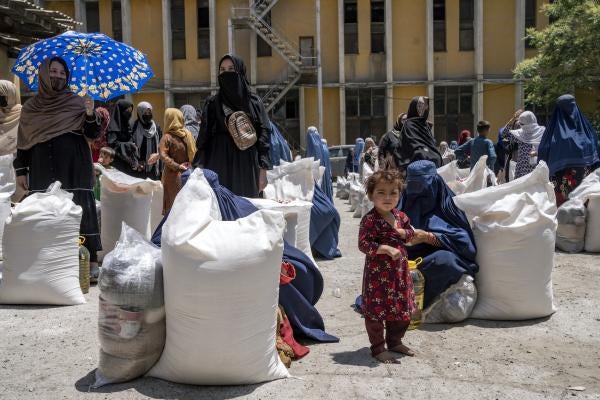While Andrew Stroehlein and the rest of the regular Daily Brief team take a well-deserved break, I'll be stepping in to share an article from HRW's weekly newsletter the Week in Rights. Thanks for reading - Paul Aufiero
It’s been two years since the Taliban took control of Afghanistan. For those under its rule, particularly women and girls, life has been a nightmare.
Over the past two years, Taliban authorities have fueled a human rights disaster. They have denied women and girls their rights to education, work, movement, and assembly, and imposed censorship on the media and access to information. Authorities have also increased detentions of journalists and other critics. Security forces have carried out torture and executions.
Women and girls’ rights have been decimated since the Taliban took power in August 2021. Many women have been dismissed from jobs, and authorities have banned women from working for humanitarian organizations, except in limited areas. Women and girls are denied access to secondary and higher education.
The Taliban’s policies and restrictions not only harm Afghan women who are activists and rights defenders, but all women seeking to live a normal life.
Meanwhile, Afghanistan has become one of the world’s worst humanitarian crises, with more than 28 million people – two-thirds of the population – in need of assistance. The United Nations has reported that four million people are acutely malnourished.
Women are bearing the brunt of this catastrophe as well. The Taliban’s near-total ban on women working with nongovernmental organizations has severely harmed women’s livelihoods. Women and girls already have a harder time getting access to food, health care, and housing. But now cut off from the distribution and monitoring of aid, it is impossible to determine whether they are receiving desperately needed assistance.
Donor countries need to find ways to mitigate the humanitarian crisis without reinforcing the Taliban’s repressive policies against women. And fast. The fundamental rights of all Afghans, as well as their access to vital assistance, are at stake.
Read the latest edition of the Week in Rights here.


